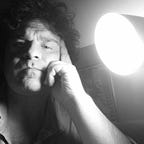Book Review: “Unlearning Anxiety & Depression: The 4-Step Self-Coaching Program to Reclaim Your Life”
by Joseph J. Luciani, PhD
Reviewer: Anthony Pomes
Full disclosure: Please note that your humble reviewer finished reading this book exactly thirty-five days ago. He knows this for a fact because that was when he began the “mind-brain unlearning” process for himself, outlined wonderfully by author and internationally esteemed psychologist Joseph J. Luciani, Ph.D. as the “Forty-Four Daily Inspirational Pep Talks” that are designed specifically to guide his readers in Unlearning Anxiety & Depression ($14.95 USD, Goodman Beck Publishing). Today’s pep talk — listed by Dr. Luciani as “Day 35: Yes, you can!” — appears as follows, and sharing it here below may be a help to you:
“Talk about tenacity — Thomas Edison tried sixty thousand different filaments before he succeeded with the light bulb. Sixty thousand! What do you think would have happened if on trial fifty-nine thousand nine hundred ninety-nine he said, ‘The hell with this. Get me a candle’? In the end, psychological resiliency and tenacity will always prevail. When it comes to your emotional liberation, being tenacious with your Mind-Talk efforts will bring light into your life.”
Once upon a time, there hung a stigma over those who dared to admit out loud their own varied struggles with anxiety and depression — particularly here in the States, where a so-called American “dream” was seemingly engineered long ago to gloss over any potential experience of life as something closer to a nightmare. Ever since September 11, 2001 (“9/11”), though, the covers have been thrown back — and a harsher reality, equal parts anxiety and depression, has emerged as the rule more than the proverbial exception. In the past few months alone, the combined wallop of the COVID-19 pandemic, together with the unjust murder of African-American citizen George Floyd and the subsequent “Black Lives Matter” protests that have erupted nationwide, have only amplified the prevalence of our deep sorrow and daily malaise. So the question is no longer whether or not feelings of anxiety and depression constitute a legitimate psychological challenge — it is now about how to deal with these issues.
Thankfully — and helpfully, as it turns out, while a great many of us continue to observe social distancing — Dr. Luciani presents in his new book a well-established “Self-Coaching” program with which those of us who want to help ourselves can do just that. A key part of Dr. Luciani’s methodology is what he calls “Mind-Talk,” and he takes the time to point out that he defines anxiety and depression more as “habits” than “illnesses” — and habits that, according to the good doctor, can be broken. There are, of course, varying levels of anxiety and depression — both of which are brought on by the inescapable specter of insecurity, which has grown to such a level of omniscience across our nation in the past two decades that it seems surprising that they’ve yet to develop a vaccine against it. Through a smart combination of bullet-point instructions and a smattering of self-directed quizzes, this book helps the reader to get a firm fix on where they are on the anxiety and depression severity scales — and what they can do to “self-coach” themselves back to health.
For those who may need to see how this kind of self-coaching approach can work for others before they consider it for themselves, the book offers a sturdy handful of “case studies” (identified only by first names, of course) whose own trajectories serve to help and inspire. While he admits that a number of the core concepts in this book have been offered previously in other of his bestselling titles over the past several years, it’s good to have these various self-help concepts and approaches gathered and reconfigured here in a single volume.
As any good cognitive behavioral psychologist worth their salt would do, Dr. Luciani takes the time to explain the “neuroplasticity” of the human brain to his readers — which, in essence, is the term championed by Nobel Prize-winning neuropsychiatrist Eric Kanel in 2000 as the concept “that learning quite literally changes the brain’s structure.” But this is by no means a perfect book: this reviewer has read other titles on this topic with a keener sense of editorial organization, and this book’s Index would have benefited from a stronger overall attention to scope and detail prior to publication. It would also have been helpful if each chapter had its own respective running head titles across the top of the pages, so the reader knows where (s)he is in the book as they go through various pieces of data and material. All told, however, it is Dr. Luciani’s kind and considerate tone that keeps the reader engaged and inspired to find a way towards life’s repair through better self-care. We are lucky to have Dr. Luciani’s new book, which may inspire others of you to take fuller stock of yourselves just as it has this reviewer.
